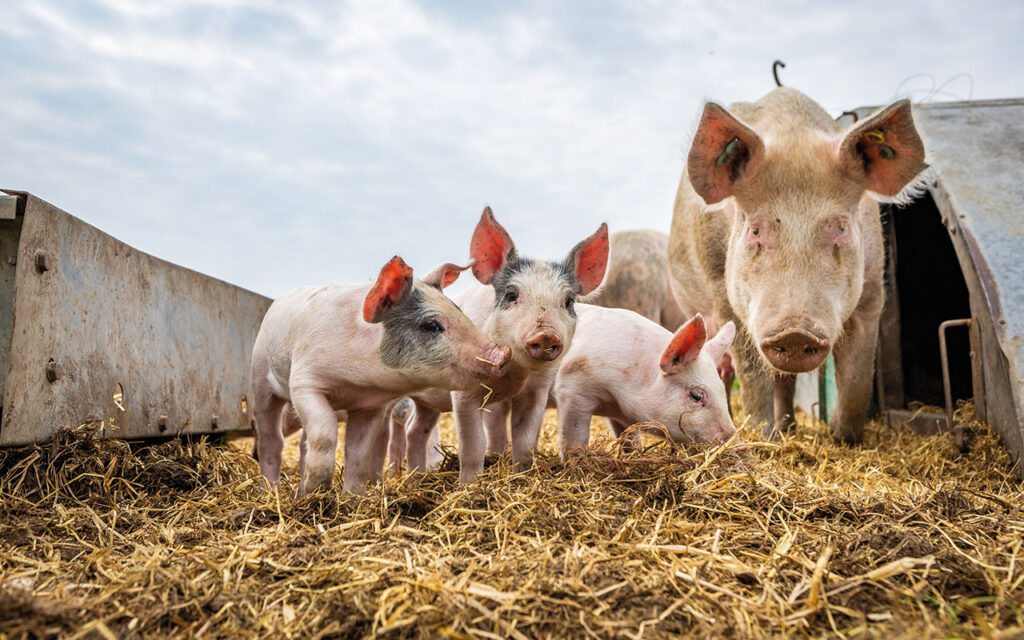Confirmation by Red Tractor that it is introducing new assurance modules covering outdoor pig production put it into direct competition with RSPCA Assured for the first time. Here, RSPCA Assured executive director Toby Baker makes the case for the RSPCA’s scheme.
 With the summer holidays in full swing, food is at the heart of our shared moments – whether it’s alfresco meals or staycation BBQs.
With the summer holidays in full swing, food is at the heart of our shared moments – whether it’s alfresco meals or staycation BBQs.
But people are no longer just asking what’s for dinner – they’re asking where did it come from?
This growing curiosity is about more than taste or price; it’s about principles. Increasingly, shoppers want reassurance that the animal products they consume are produced with genuine care.
See also: Farm assurance debate: An important change driven by the supply chain
Yet, higher welfare is still an optional extra for most other assurance schemes, rather than a consistent, core requirement. This positions welfare as a voluntary upgrade, rather than a fundamental part of responsible and compassionate food production.
Excellence, not extras
A tiered model – where producers choose a level of welfare to opt into, basic, better or best – is being explored by other assurance schemes. But we don’t believe animal welfare can be upgraded like a broadband package. A tiered approach risks sending the wrong message: that higher welfare is a luxury, not a necessity.
On the surface, tiered welfare sounds like choice and flexibility, but in reality, it’s turning welfare into a sliding scale of convenience rather than a consistent, credible standard.
That’s why our approach is different at RSPCA Assured. Higher welfare isn’t an optional upgrade for us; it’s the foundation of everything we do.
It’s built into the RSPCA standards, our assessments and our values. The RSPCA’s science-based standards are enforced through regular, independent inspections carried out by our team of specially trained, in-house assessors – something many other schemes don’t have.
We don’t ask producers to pick the level of welfare they are willing to provide; we ask them to commit to welfare excellence – no matter their system.
The RSPCA welfare standards ensure that animal welfare continually progresses, whereas tiered models may risk slowing progress if there is no commitment to regularly reviewing and updating their requirements.
Even well-intentioned higher-welfare tiers could remain static without the continual improvement that true welfare leadership demands.
It’s easy to forget that welfare isn’t a label, or a logo, or even an assurance scheme. It’s the lived experience of millions of animals. They might be raised for food, but that doesn’t mean they should suffer, and it certainly doesn’t justify reducing their lives to a convenient tier simply because it’s easier or cheaper.
Higher welfare comes from doing things the right way, every time, on every farm.
Embedded welfare
The RSPCA standards go beyond industry requirements in many key areas. Here’s a glimpse of what this means in practice for pigs:
l No farrowing crates, ever: Pregnant sows are never confined to farrowing crates. They are given space, soft bedding and enrichment to nest, move and interact naturally with their piglets.
l No barren, fully slatted floors: All pigs must be housed with suitable, comfortable flooring and given appropriate bedding.
l Enrichment materials as standard: Straw, chewable objects or other manipulable materials are a requirement. Each breeding sow is guaranteed at least an additional 2kg of long-stemmed straw (or an equivalent substrate) of nesting material prior to farrowing.
l Higher welfare across all systems: The RSPCA welfare standards mean higher welfare regardless of the system.
l Tail-docking as a last resort: Permitted only in certain circumstances, after approval by the RSPCA and the farm’s vet.
Commercial sense
According to a recent RSPCA Assured survey, 85% of people say it’s important to them that farmed animals are cared for to higher-welfare standards, and 61% say they’d go to a different shop if they couldn’t find cage-free eggs.
It doesn’t make commercial sense to ignore such a large majority calling for better welfare. Welfare isn’t just a question of morals anymore; it’s also the key to building trust and achieving long-term market success.
By adopting the RSPCA’s welfare standards, producers can stand out and position themselves as leaders in the industry. Our standards demonstrate that welfare excellence isn’t just a marketing slogan; it’s who we are.
While we appreciate any assurance scheme striving to improve standards, RSPCA Assured holds a unique and highly trusted marketplace position and remains the label of choice for those who care about welfare.




